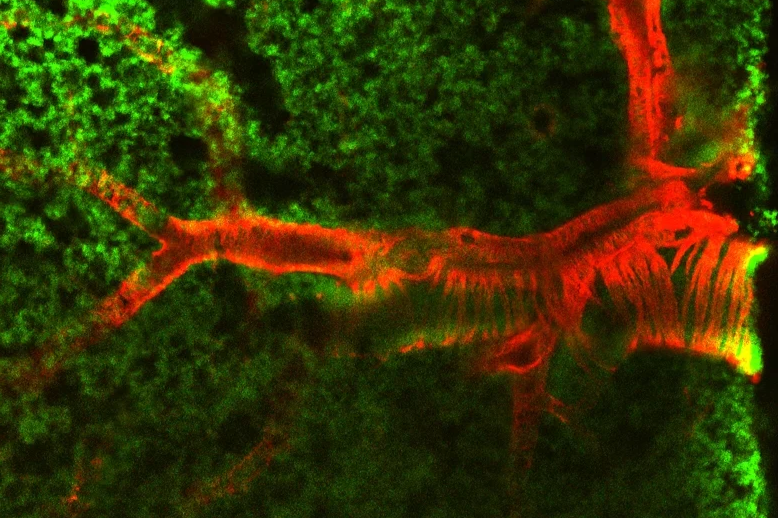T cell differentiation
KLF2 maintains lineage fidelity and suppresses T cell exhaustion
The problem
T cells make fate decisions that determine whether they become short-lived effectors, long-lived memory cells, or exhausted cells that fail to fight. Many transcription factors are known to be involved, but their precise roles — and how they interact with one another — remain unclear. We set out to ask a broad question: how do transcription factors coordinate T cell differentiation across infection and cancer?
Our approach
To answer this, we applied Perturb-seq, a new technology at the time, to T cells responding to viral infection. By systematically knocking out ~40 transcription factors and combining CRISPR screening with single-cell RNA sequencing, we built a map of how each factor reshapes T cell fate trajectories. This allowed us to go beyond single-gene experiments and see the regulatory network in action at single-cell resolution.
What we found
Most transcription factors influenced the extent of “linear” differentiation — whether a T cell progressed toward effector or memory states. But KLF2 was different. KLF2 uniquely acted to maintain lineage fidelity by preventing cells from sliding into alternative fates like exhaustion or resident memory. Mechanistically, we found two key functions:
KLF2 suppresses the transcription factor TOX, which drives exhaustion.
KLF2 is required for T-bet to function properly as an effector regulator.
When KLF2 was lost, cells rapidly upregulated exhaustion markers (TOX, PD-1, CD160, KLRG1) and their chromatin landscapes resembled chronically stimulated T cells. We also showed that chronic TCR signaling promotes degradation of KLF2, explaining why its loss is linked to T cell exhaustion in infection and cancer.
The impact
Mapped a network of T cell transcription factors with single-cell resolution, a first for infection and cancer contexts.
Identified KLF2 as a unique safeguard that preserves therapy-responsive T cells by holding exhaustion in check.
Revealed a mechanism by which chronic TCR signals destabilize KLF2, opening the door to exhaustion.
Together, this work provided a blueprint for understanding T cell lineage decisions and identified KLF2 as a critical target for sustaining T cells in cancer immunotherapy.

